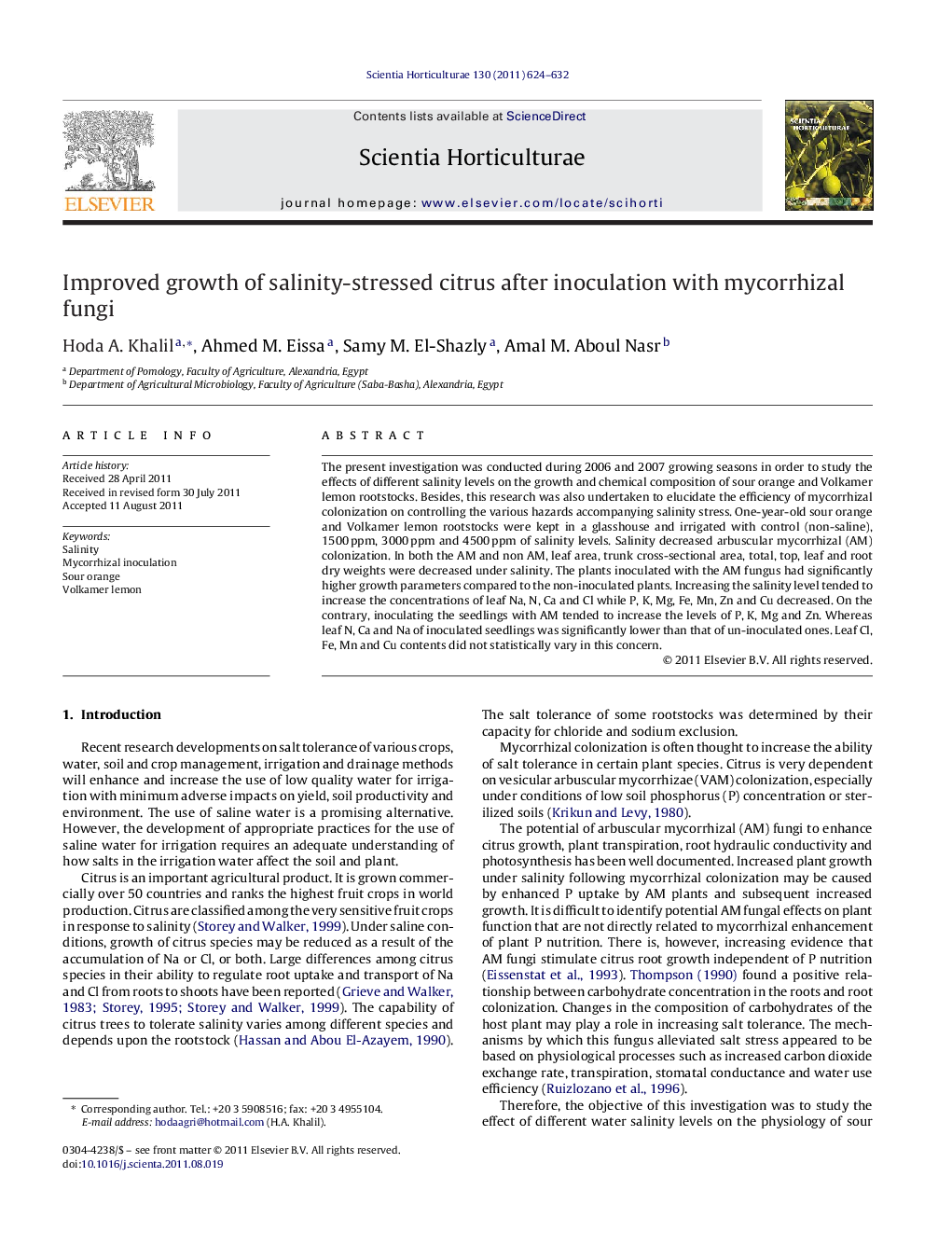| Article ID | Journal | Published Year | Pages | File Type |
|---|---|---|---|---|
| 4567974 | Scientia Horticulturae | 2011 | 9 Pages |
The present investigation was conducted during 2006 and 2007 growing seasons in order to study the effects of different salinity levels on the growth and chemical composition of sour orange and Volkamer lemon rootstocks. Besides, this research was also undertaken to elucidate the efficiency of mycorrhizal colonization on controlling the various hazards accompanying salinity stress. One-year-old sour orange and Volkamer lemon rootstocks were kept in a glasshouse and irrigated with control (non-saline), 1500 ppm, 3000 ppm and 4500 ppm of salinity levels. Salinity decreased arbuscular mycorrhizal (AM) colonization. In both the AM and non AM, leaf area, trunk cross-sectional area, total, top, leaf and root dry weights were decreased under salinity. The plants inoculated with the AM fungus had significantly higher growth parameters compared to the non-inoculated plants. Increasing the salinity level tended to increase the concentrations of leaf Na, N, Ca and Cl while P, K, Mg, Fe, Mn, Zn and Cu decreased. On the contrary, inoculating the seedlings with AM tended to increase the levels of P, K, Mg and Zn. Whereas leaf N, Ca and Na of inoculated seedlings was significantly lower than that of un-inoculated ones. Leaf Cl, Fe, Mn and Cu contents did not statistically vary in this concern.
► The effects of different salinity levels on the growth, mineral composition of sour orange and Volkamer lemon rootstocks were studied. ► This research was also undertaken to elucidate the efficiency of mycorrhizal colonization on controlling the various hazards accompanying salinity stress. ► We suggested to use Volkamer lemon rootstock and inoculate the soil with mycorrhizae Glomus intraradices.
